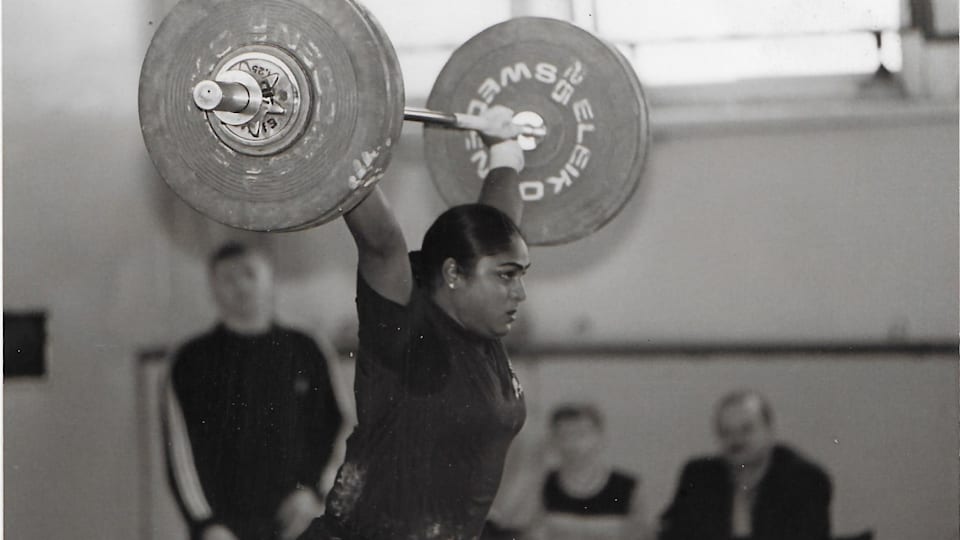An Olympic moment that transformed sport for Indian women
While Karnam Malleswari became the first Indian woman to win an Olympic medal at Sydney 2000, her achievement triggered a change in the right direction.

For Indian weightlifting champion Karnam Malleswari, the Sydney 2000 Olympics will always be a dream that came true.
Included in the Olympic programme for the first time, women’s weightlifting not only saw India win their only medal at the Sydney Games but also helped Malleswari become the first Indian woman to climb on the Olympic podium.
It’s been 20 years since that eventful day. But even today, the 45-year-old’s heroics at Sydney 2000 is remembered fondly. In fact, for many, it’s a moment that changed the outlook of Indian society towards women in sports.
“Though we had signs of this change coming about from the early Eighties, it’s only after Karnam won her medal at the Sydney Games that we saw a sudden spike,” Indian long jump great Anju Bobby George told the Olympic Channel.
“In the past, we had athletes like PT Usha, Shiny Wilson and Kunjarani Devi. These guys did well and created a legacy, but it’s only after 2000 that we have seen a slew of women talent in Indian sports.
“If you are to look at each Olympics (since Sydney 2000) you have a woman athlete who went in as the face of the contingent. There was me at Athens 2004, then you had the likes of Mary Kom, Saina Nehwal and PV Sindhu… We always had a woman face for the Indian contingent,” said Anju.
Inspired by the weightlifter’s heroics at the Sydney Games, the coming years saw a number of young girls take to various sporting disciplines with a hope to emulate their new-found hero.
While many discontinued largely due to social and economic reasons, this surge gave birth to new superstars in Saina Nehwal, Geeta Phogat and others.
According to the former long jump ace, the change has been largely possible because of the manner in which they approached every challenge thrown at them. “Women in our country are very courageous,” Anju Bobby George reasoned.
“They are not the one to shy away from a challenge. And at the highest level, it is these little things that make a difference. Look at Sakshi Malik winning the bronze medal at Rio 2016. She just refused to give up!”
Indian women athletes being heard
While their courage and determination in the face of adversity have been unquestionable, Sharda Ugra, one among the first full-time women sportswriters in the India, believes there’s more to this tale. “Women have always been there in sports. It’s not a recent phenomenon,” she said.
“What’s changed over the years is that they now ensure they are being heard. The moment you breakthrough at an international level, then it’s like saying ‘Look at what I can do?’ That’s become a big change agent.
“In that way, you need people to have someone like a Sania (Mirza) and Saina who are out there. Confident with themselves, talking, not ready to be ‘good girls.’”
Power of the Commonwealth Games
Though the early years of the 21st century saw an influx of Indian women in sports, it was not until the 2010 Commonwealth Games in New Delhi that they became the cynosure of the Indian masses.
Competing in almost every event by virtue of being the hosts, the 2010 Commonwealth Games was a groundbreaking moment as Indian women athletes went on to win almost half of India’s 101 medals at the event.
“The 2010 Commonwealth Games did the trick for sports in India,” Geeta Phogat, the first Indian woman to win a CWG gold medal, reckons.
“We had a number of women participate and win at the international stage and the country took notice of that. You would have a (woman) champion on the back page of the newspapers almost every day. That paved the way for future success.
“This success was followed by job opportunities by the state and the central government. So, when you realise that you can make a living out of playing a sport that you love, people tend to take it seriously.”
Supporting a daughter’s dream
And according to Sharda Ugra, such recognition has helped in encouraging a number of women looking at sports as a profession.
“It's been a huge change. Look at the women's hockey team, for instance. They are not setting the world on fire, but they are improving. They are giving you good results,” she explained.
“I believe that professional sports are a matter of livelihood and not leisure. When your chances of livelihood increase -- which is the case for these girls -- you see more women taking it up.
“If they see 'OK, I can make a living out of this' then the parents support the daughter’s dream.”
And this change has been largely possible because of the changing outlook of the Indian society.
“Today, a career in sports is considered equal to any other profession. The parents have an open mindset towards sports and that helps a lot,” Anju Bobby George signed off.
